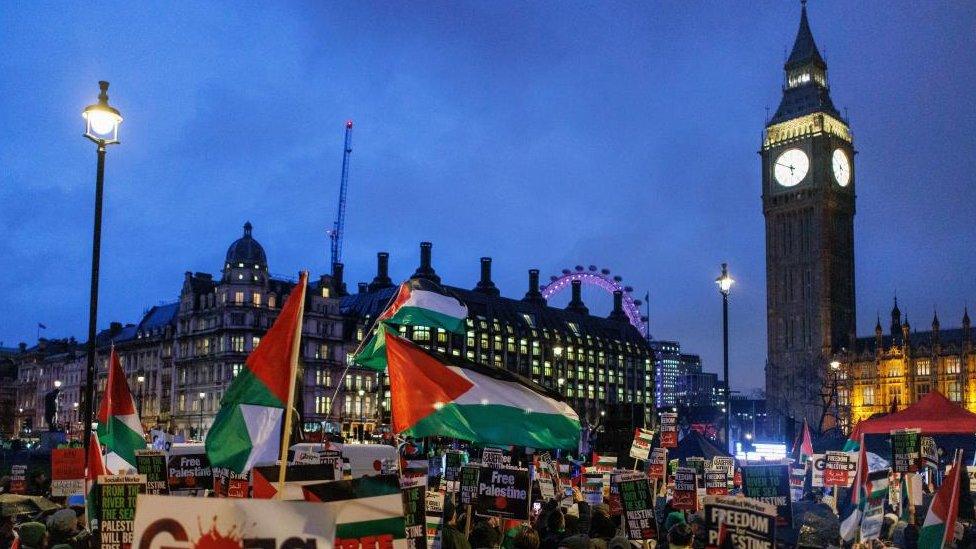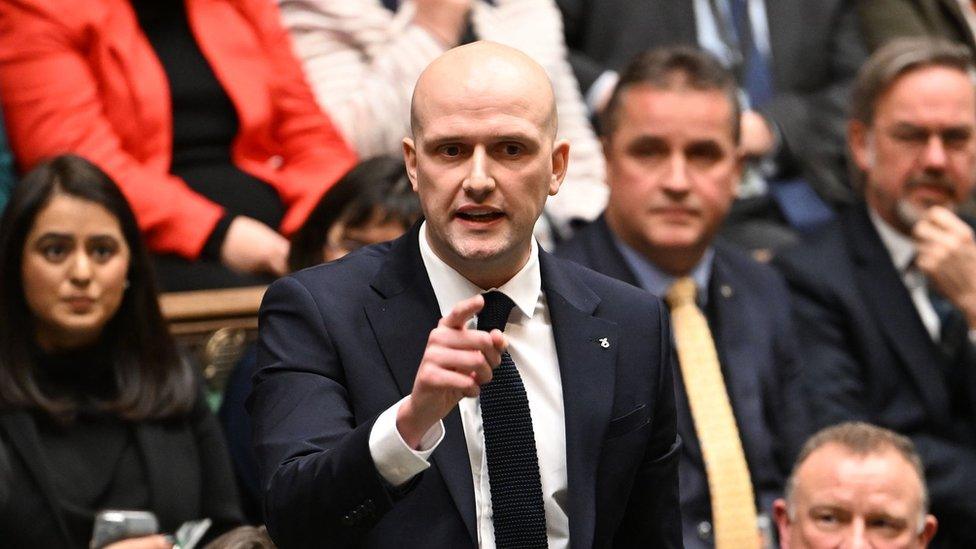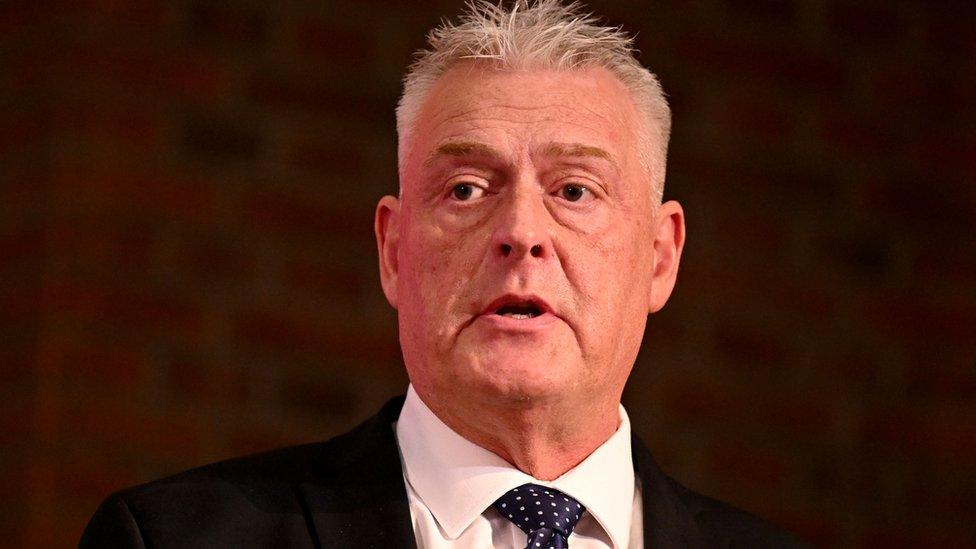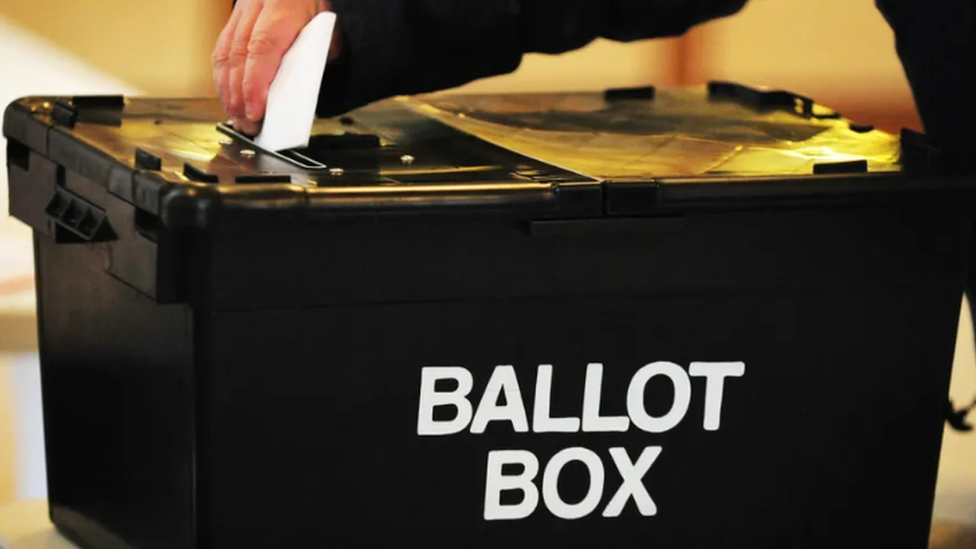How the Gaza conflict is contorting UK politics
- Published

The two biggest political parties at Westminster and Parliament itself are finding themselves buckled, bent and contorted by the furious arguments provoked by the Israel-Gaza war.
For the Conservatives, the Lee Anderson row about Islamophobia.
For Parliament, the Commons Speaker row about a ceasefire and parliamentary procedure.
And for Labour, the Rochdale row about antisemitism and the by-election there in a few days.
The prime minister's week began with a trio of BBC local radio interviews, where alongside questions about spending on transport projects in the north of England he was inevitably asked about his former deputy chairman's remarks.
It's only a few weeks back that Rishi Sunak and Mr Anderson were doing a joint campaign video, external.
Now Mr Sunak is distancing himself from Mr Anderson.
But the prime minister, like his deputy, is not describing what Lee Anderson said as Islamophobic.
In fact, a row about that very word has broken out within the Conservative Party, with former chairman Baroness Warsi at loggerheads, external with the Business Secretary Kemi Badenoch over it.
Next, the Speaker of the Commons Sir Lindsay Hoyle starts the week with the third biggest party, the SNP, saying it doesn't have confidence in him.
And Conservative MPs' WhatsApp groups are inflamed too, I hear, the sentiment of many being "how can we ever trust him again?"
As it stands, 72 MPs have signed a Commons motion saying he should go, external.
This may all mean Sir Lindsay concludes he has no option but to address the issue - either by standing down or saying he will at the election.
But the pressure on him seems to have eased a little - or not got worse - for now at least.
The SNP's focus is on securing a debate where they can shift the dial on the government's approach to the Israel-Hamas war.
They want one under what is known as standing order 24, external.
It only allows for the Commons to consider something, rather than vote on a substantive question, which is what the SNP want.
Which leaves the Speaker in a bind: fail to give them what they want, or bend parliamentary conventions again - which is what got him into trouble in the first place.
Meanwhile, I hear some of the smaller parties have been comparing notes on how they feel they are treated by the Speaker and will see him later to set out their argument too.
And then there is Labour. The Rochdale by-election is on Thursday and the party that aspires to be in government before the year is out is a mere bystander, a spectator - after their candidate was accused of antisemitism and the party disowned him.
What we are seeing is a noisy, angry mess on three fronts and two big central questions: what is it legitimate to say about different communities or religious groups?
And, in an election year, is it in the interests of our political parties to seek to calm things down, or crank things up?
Right now, the evidence suggests the latter.
- Published26 February 2024

- Published24 February 2024

- Published12 February 2024

